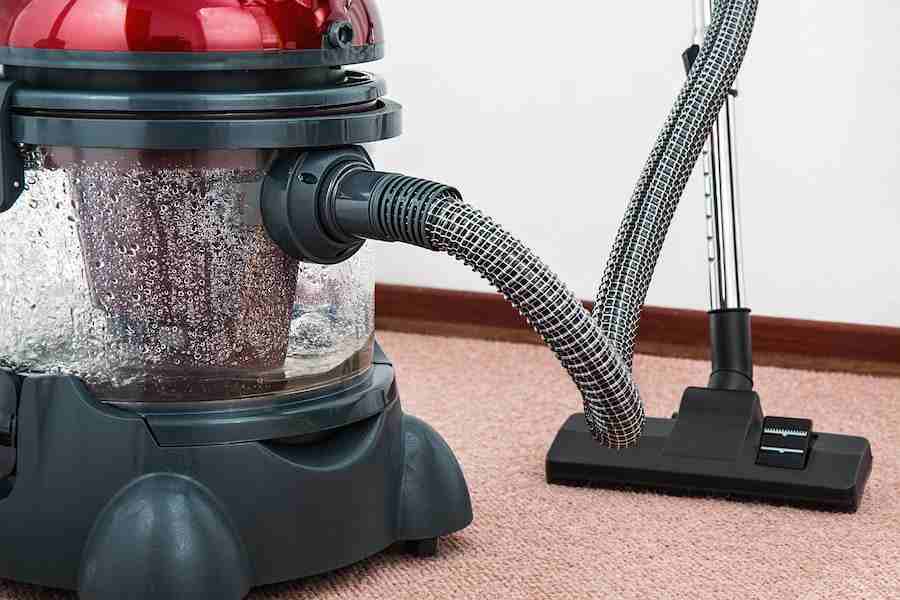In today’s fast-paced and technology-driven world, home appliances play a vital role in enhancing our daily lives. From refrigerators and washing machines to smart home devices, these appliances have become indispensable for maintaining comfort, convenience, and efficiency in households worldwide. As our reliance on home appliances continues to grow, so does the potential for entrepreneurs to tap into this lucrative market. However, before embarking on the journey of starting a business in the home appliance industry, it is essential to thoroughly evaluate its financial viability. This article aims to delve into the key aspects that contribute to the financial success of such ventures.
Market Analysis
The home appliance industry is a dynamic and highly competitive market that has witnessed significant growth in recent years. Understanding the market landscape is crucial for assessing the financial viability of starting a business in this industry.
The home appliance industry has experienced steady growth due to factors such as rising disposable incomes, urbanization, and technological advancements. The market encompasses a wide range of products, including kitchen appliances, laundry appliances, HVAC systems, and smart home devices. This diversity offers ample opportunities for entrepreneurs to carve out a niche and cater to specific consumer needs.
Consumer preferences and trends play a pivotal role in shaping the market dynamics. There is a noticeable shift towards smart appliances that offer connectivity, automation, and energy efficiency. Consumers increasingly seek appliances that integrate with their smartphones or home networks, providing them with enhanced control and convenience. Energy-efficient appliances have also gained traction due to environmental concerns and the desire to reduce electricity bills.
To successfully enter the home appliance market, entrepreneurs must identify target market segments based on demographics, lifestyles, and psychographics. Understanding consumer needs, pain points, and aspirations is essential for developing products that resonate with the target audience. Additionally, analyzing the competitive landscape is crucial to identify key players, assess their market share, and understand their strategies.
Financial Considerations
Starting a business in the home appliance industry requires careful financial planning and analysis. Several key factors should be considered to assess the financial viability of such a venture.
Initial investment and startup costs are crucial aspects to evaluate. This includes research and development expenses to design and prototype appliances, manufacturing and supply chain costs to produce and source the products, as well as marketing and promotional expenses to create brand awareness and attract customers.
Revenue generation and pricing strategy play a significant role in determining the financial success of the business. Entrepreneurs need to consider competitive pricing models that balance profitability with market demand. Conducting market research and understanding consumer preferences can help in setting optimal prices that attract customers while ensuring sustainable profit margins. Projections of sales volume and revenue potential are essential for estimating the business’s financial performance over time.
Profitability and return on investment (ROI) analysis are vital in assessing the long-term financial prospects of the business. It involves evaluating the profit margins on products, analyzing the breakeven point (the level of sales needed to cover all expenses), and determining the expected ROI over a specific period. Sustainable growth prospects, including opportunities for product diversification or expansion into new markets, should also be considered.
Furthermore, entrepreneurs must be aware of potential risks and challenges that could impact the financial viability of the business. These may include economic fluctuations, changes in consumer preferences, technological advancements, and intense competition. Developing risk mitigation strategies, such as diversifying product offerings, building strong customer relationships, and implementing effective marketing and sales strategies, can help navigate these challenges.
With all that has been said, if we look at an example of starting a business in the home appliance industry, it would be crucial to assess the competitive landscape for the most popular home appliance brands. Understanding the market dominance and reputation of established brands can help entrepreneurs gauge the level of competition they may face. Established brands often have a significant market share and loyal customer base, which can pose challenges for new entrants.
However, it also presents opportunities for differentiation and innovation. By studying the strategies and offerings of these popular brands, entrepreneurs can gain valuable insights into consumer preferences, pricing models, and marketing approaches that contribute to their success. This knowledge can be leveraged to develop a unique value proposition and positioning for the new business, enhancing its competitive advantage in the market.
Risk Assessment And Mitigation
Embarking on a business venture in the home appliance industry comes with its fair share of risks and challenges. Identifying and addressing these risks through effective mitigation strategies is essential for ensuring the long-term financial viability of the business.
Market risks are a significant concern. Fluctuations in the economy, changes in consumer preferences, and evolving industry trends can pose challenges. Entrepreneurs should stay vigilant and adapt their product offerings and marketing strategies accordingly. Keeping a pulse on market trends, conducting regular market research, and staying connected with customers will help in identifying and responding to shifting demands.
Intense competition is another risk in the home appliance industry. Entrepreneurs must conduct a thorough analysis of their competitors, identifying their strengths and weaknesses. Developing a unique value proposition and positioning the business in a way that differentiates it from competitors can help capture market share. Additionally, building strong customer relationships, offering exceptional customer service, and continuously innovating products are vital for maintaining a competitive edge.
Supply chain disruptions can also impact the financial stability of a business. Entrepreneurs should establish robust supplier relationships, diversify their sourcing options, and maintain adequate inventory levels to
Conclusion
In conclusion, starting a business in the home appliance industry can be financially viable if approached strategically. Conducting a comprehensive market analysis helps identify target market segments, understand consumer trends, and analyze competition. Careful financial considerations, including initial investment, revenue generation, and profitability analysis, provide insights into the business’s financial potential. Mitigating risks through effective strategies such as adapting to market changes, differentiating from competitors, and maintaining a resilient supply chain enhances the business’s long-term viability. With a solid understanding of the industry, careful planning, and continuous adaptation, entrepreneurs can position themselves for success in the dynamic and promising home appliance market.





















